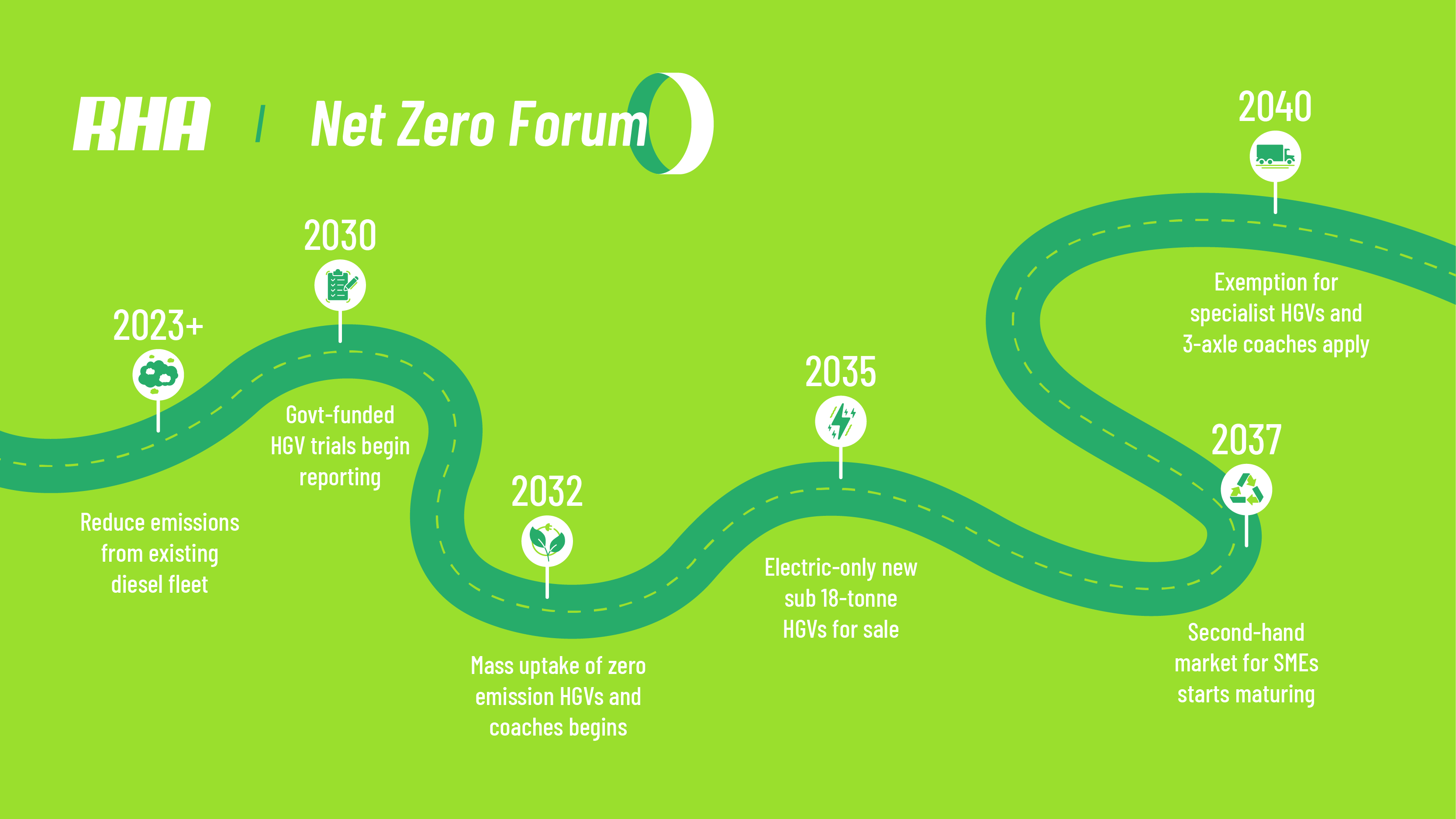Reduce emissions from existing diesel fleet
There are measures operators can take now to reduce C02 emissions from their existing diesel fleets. Options include using low-carbon fuels such as HVO or CNG, efficient driving, reducing empty loads and streamlining existing vehicles.
For further information on:
reducing emissions from the existing diesel fleet – see: https://thefreightportal.org/
how to decarbonise your business – see: https://businessclimatehub.org/uk/
current availability of zero emission HGVs and coaches – see: https://www.freightcarbonzero.com/manufacturers
Goverment-funded HGV trials begin reporting
The UK Government’s Zero-Emission Road Freight Demonstrator Programme is expected to begin reporting from 2030. With £200m invested in research and development of zero-emission vehicles weighing over 40 tonnes, the data derived from the trials will help confirm how these vehicles perform and inform private sector business cases to invest in these vehicles. The data is also expected to inform how vehicles below 40 tonnes perform too.
Mass uptake of zero-emission HGV’s and coaches begins
The Climate Change Committee predicted in its sixth Carbon Budget (published 2020) that the mass introduction of zero-emission HGVs and coaches would begin from 2032. This target is heavily dependent however on the infrastructure to power these vehicles being in place.
(Reference: in 2022, 0.16% of HGV’s are zero emission. This represents just less than 1,000 vehicles, out of a total UK fleet of 600,000).
Electric-only new sub 18-tonne HGVs for sale
The RHA predicts that sales of new diesel HGVs below 18 tonnes can be stopped from 2035. These new vehicles are likely to be battery electric serving short-to-medium range operations (such as urban deliveries and journeys between regional operation centres).
Second-hand market for SMEs starts maturing
For small businesses to be included in the transition to Net Zero, a vibrant second-hand market in zero-emission vehicles is necessary. First adopters are currently expected to hold their vehicles for at least 10 years – longer than the usual five-seven years. However, uncertainty also exists over whether “second use” of battery electric vehicles is possible.
Exemption for specialist HGVs and 3-axle coaches apply
If viable zero-emission solutions for certain HGV and coach operations cannot be found in time then exemptions will need to apply to the diesel phase-out dates. The RHA currently believes long-distance and specialist operations (such as heavy haulage, refrigerated transport) may need to be exempt. Should exemptions be necessary, then residual emissions should be appropriately off-set to meet the 2050 Net Zero target. The need for such exemptions should be reviewed at least every three years between 2023 and 2040.

